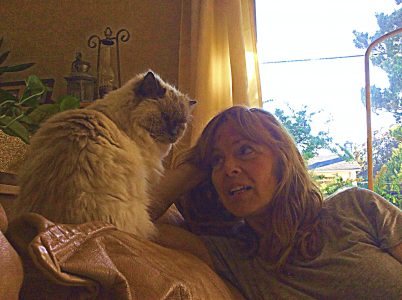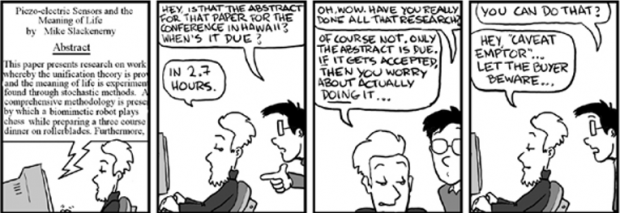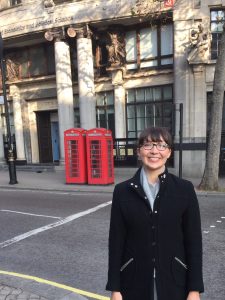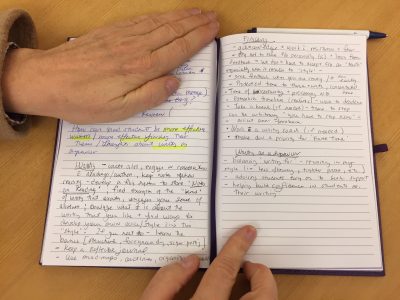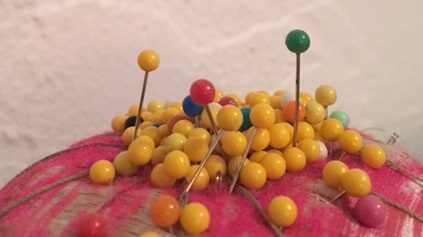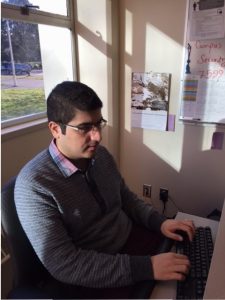
By Qian Liu
Writing is a process of thinking. In the process, ideas are recorded and become important sources for further thinking. Publication is a by-product of this process. Instead of keeping your ideas to yourself, publishing your work is a way to communicate with others and makes the journey of thinking less lonely. At the very beginning of my Ph.D. program, senior students in our program told me that being a Ph.D. student is very isolating, as you spend too much time in the carrel alone working on something that people do not care about. They said that you may end up spending five years writing a dissertation that only your supervisory committee members will read carefully. This does not discourage me to continue my studies, because I believe that writing a dissertation helps me address the questions that I am always trying to address or know more about. Besides, there are always plenty of opportunities out there to have our ideas heard during the process of dissertation writing.
One good thing about conducting a research study that you are passionate about is that often there are moments when you feel that it is your responsibility as a scholar to get your ideas out both inside and outside academia. Doing research on the impact of law on Chinese women’s choices in marriage and childbearing, I always feel the need to say something when I see any chance to contribute to social and legal changes to benefit women. In 2015, I wrote a commentary for Blogging for Equality when the law’s denial of Chinese single women’s access to freeze their eggs became a hot topic worldwide after a famous 41-year-old Chinese actress and film director announced that she had travelled to the U.S. to freeze her eggs. When feminist activists and lawyers in China put forward a report titled “Single Women’s Reproductive Rights—A Research Report on Policy and Lived Experience” and received media attention worldwide, I published an op-ed for Impact Ethics and argued that an overemphasis on state law’s impact on unmarried women’s childbearing may shift our attention away from some other social norms that are more influential than state law in stopping Chinese women from being single mothers by choice.
“Instead of keeping your ideas to yourself, publishing your work is a way to communicate with others and makes the journey of thinking less lonely.”
I also write journal articles and book chapters, but I have realized that it is more rewarding and enjoyable to write commentaries (also known as “op-eds”). Journal articles and book chapters may contribute to the knowledge in your academic field, while writing op-eds is a better way to disseminate knowledge to the general public and get your ideas out quickly. I remember it took me more than half a year to develop my first major publication for the Asian Journal of Law and Society, with quite a few emails back and forth with the editors. A commentary, however, usually only takes a few days before your ideas are delivered to the public. More importantly, op-eds can be very influential. In August 2017, I received an invitation from BBC World News to comment on Chinese women’s egg freezing issues for their live show. The journalists contacted me because they found my commentaries online when they were looking for a legal expert to speak about this issue. Although I may not be among the most influential scholars in the field of women’s studies and women’s rights, I got this opportunity because of my willingness to share my research outside academia.
I am very grateful to my supervisors Gillian Calder and Maneesha Deckha, as well as the founder of Informed Opinions, Shari Graydon, for always encouraging me to write op-eds about my work. As an international student coming directly from China, I had no experience in writing commentaries for Canadian blogs. Fortunately, my supervisor recommended Informed Opinions to me, and I learned how to write op-eds from this website. The website provides a variety of resources, which includes op-ed elements, engaging openers, editors’ advice, submitting commentary, turning media requests into opportunities, and even building relationships with reporters and columnists. If my experience convinces you to start the very enjoyable journey of blogging, you may find this website helpful to you as a beginner.
You may be wondering whether you, as a graduate student, have the authority to speak to the public about a particular topic. This thought haunted me for a long time. Sometimes, however, somebody just needs to stand out. A message from Shari after my BBC interview reconfirmed the belief that I should get my ideas heard by the public. Shari said, “diverse women’s voices are so necessary to address topics that otherwise get little attention.” Still not sure whether you can write and publish commentaries? As I said before, writing is a process of thinking and publication is the by-product of this process. If you understand writing and publishing in this way, you will find that publishing is simply a way to share your imperfect ideas in order to get some useful comments to help you think.
Qian Liu is a Ph.D. candidate at the Faculty of Law, University of Victoria, Canada. Her research interests include gender and China, legal consciousness, legal pluralism, feminist legal theory, reproductive rights, law and policy implementation in China, and qualitative research. Qian is the recipient of an IDRC Doctoral Research Award from the International Development Research Centre, Canada. She has published in the Asian Journal of Law and Society and the Asian Journal of Women’s Studies. Please direct correspondence to Qian Liu at liuqian@uvic.ca.
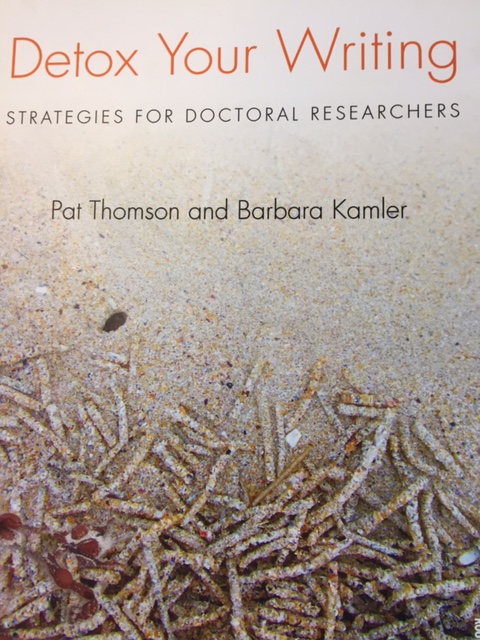 I am a big fan of Thomson and Kamler’s four-move abstract described in Detox Your Writing: Strategies for Doctoral Researchers (
I am a big fan of Thomson and Kamler’s four-move abstract described in Detox Your Writing: Strategies for Doctoral Researchers (